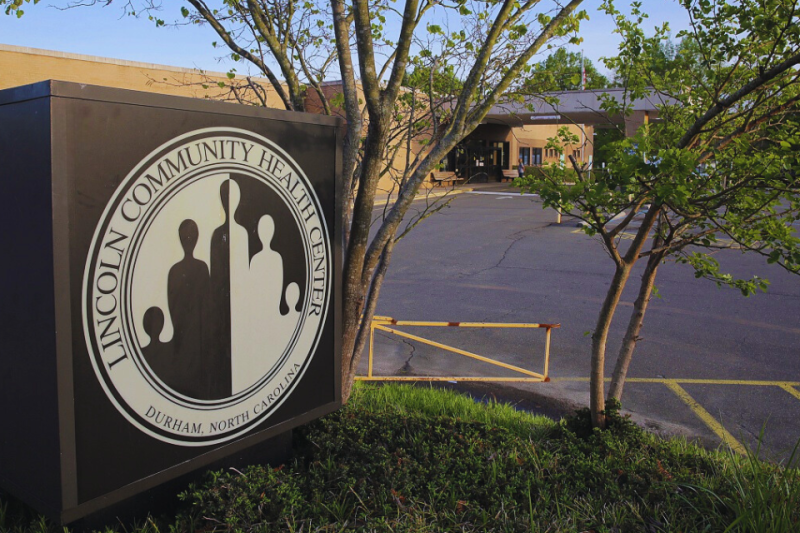
Mennatalla El-Mufti, MBBS, is a painter, writer, crocheter, outdoor adventurer, and cat mom who is passionate about global mental health and alleviating cultural stigmas around mental illness. She’s also a fourth-year psychiatry resident at Duke who recently completed a six-month community psychiatry rotation at Lincoln Community Health Center (LCHC).
LCHC, a clinic with multiple locations in Durham, “provides care for all who wish to be served, regardless of their ability to pay,” explained Carolyn Crowder, LCSW, the clinic’s director of behavioral health and rotation coordinator. “We provide integrated primary care, which includes psychiatry, therapy, and case management.”
The Duke psychiatry residency rotation at LCHC began in the 1980s. It’s one of a number of community psychiatry placement options, which are required during the third or fourth year of residency.
El-Mufti reflected on her experience at the clinic during an interview in December.
Why did you choose to do a rotation at Lincoln Community Health Center?

In medical school and especially through residency, I’ve learned that working with underserved populations is very rewarding for me, even among other clinical rotations. Coming into residency, I tried to find something that would fit that.
The Lincoln elective looked good on paper, and I talked to some of the residents who had done it and heard really good things about it. From my understanding, there was a lot of overlap in terms of the patient population I was interested in working with and the way the service is oriented.
Did your experience align with your initial expectations?
I was surprised, in a way, that there’s a lot of flexibility, and I think it speaks to the strength of the clinic. The clinic’s whole ethos is really trying to meet patients where they’re at, on every level, including financially, clinically, and logistically. It’s really patient-centered.
Working at Lincoln also took a lot of flexibility—I had to be open to last-minute schedule changes. I was there on Wednesday mornings, but I wish I’d been there for the whole day just to get more time with folks. But it definitely fulfilled my expectations positively.
Working with underserved populations in psychiatry, what would you say are the biggest unaddressed issues?
A common refrain I heard at that clinic and also in other clinics, is people will say something like, “Growing up, mental health was never a thing. It was never allowed to be a thing. These kinds of struggles were dismissed or belittled in a way.” So I think the stigma around mental health definitely still exists, and we should normalize seeking help and getting treatment. I think it’s getting better, but we’re not completely there yet.
Would you consider working at a community health center in the future?
It’s definitely on the table for me. Working with that population and the way the treatment is oriented is very rewarding. And I did my med school training in Sudan, which is where my family is originally from. So most of the patient populations that we work with were coming from these underserved demographics. In the back of my mind, I’ve always hoped to go back there one day and try to pay things forward if possible. But certainly, I think that same need also exists here in this country and in this area as well.
Any final thoughts you’d like to add?
If there are residents or students reading this, I definitely encourage them, if they’re able, to do a rotation at this clinic. It was an overwhelmingly positive experience. And those relationships with the patients that I got to see consistently over six months were meaningful. Being a part of their healing journey and treatment process—that meant a lot.
Editor’s note: This interview was edited for length.